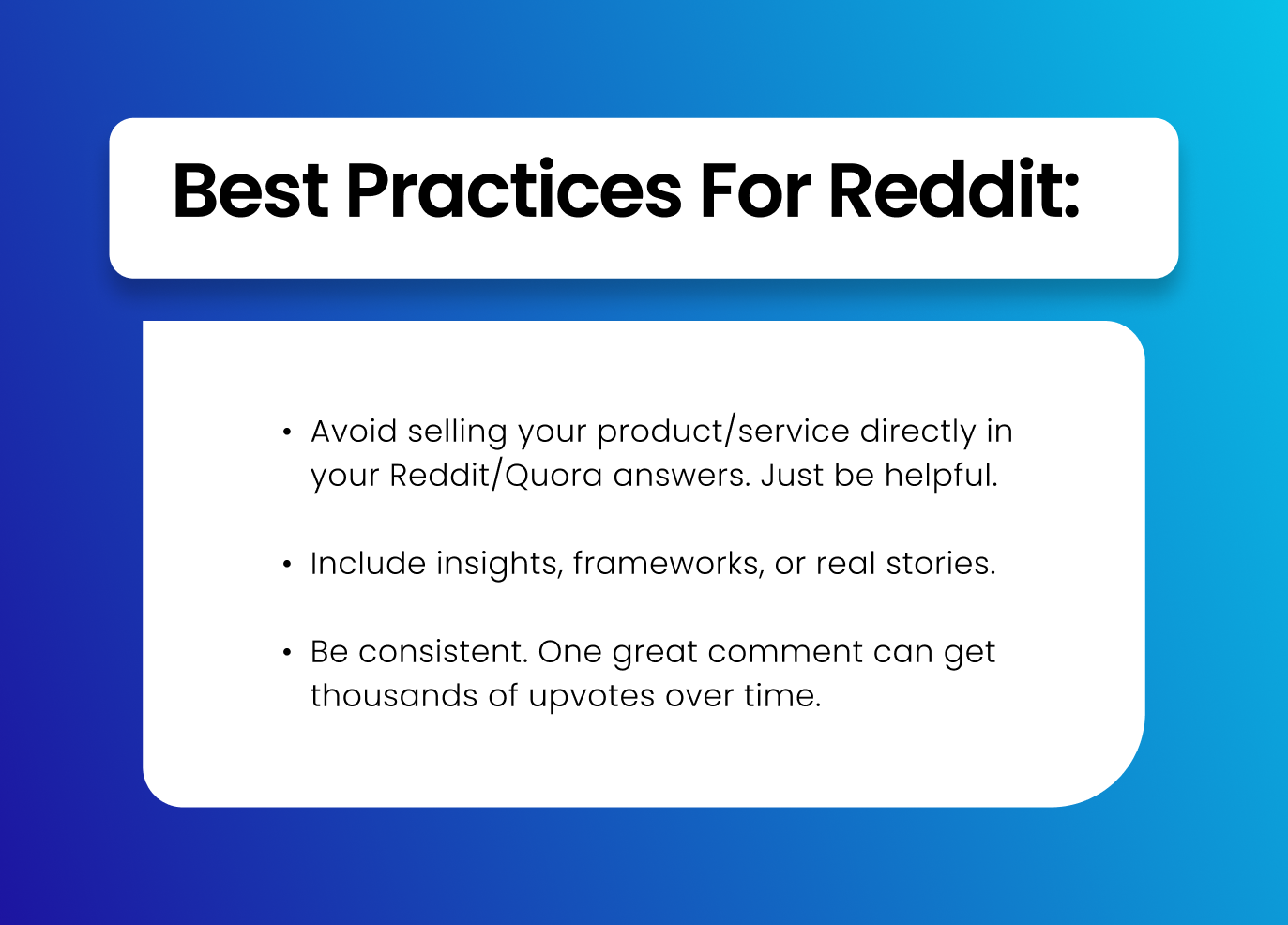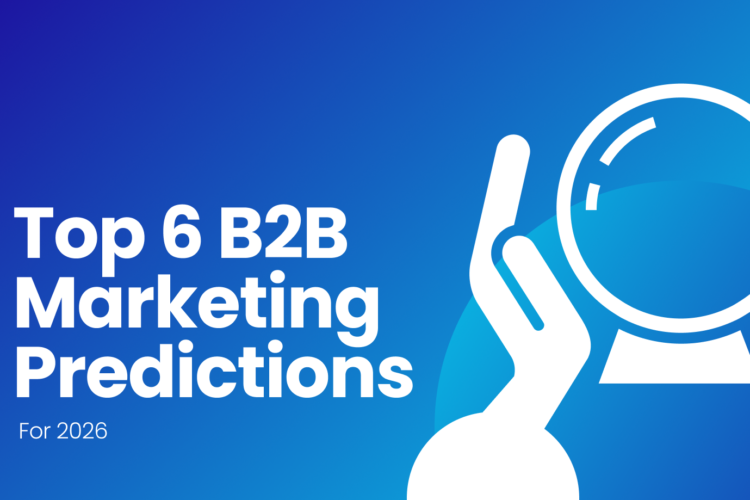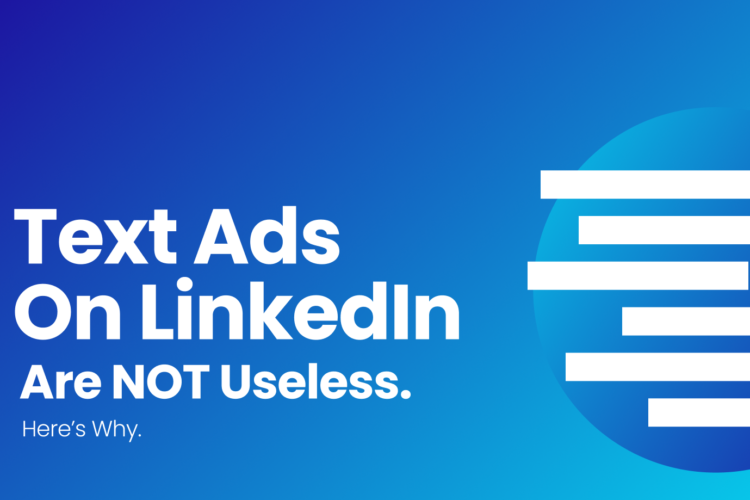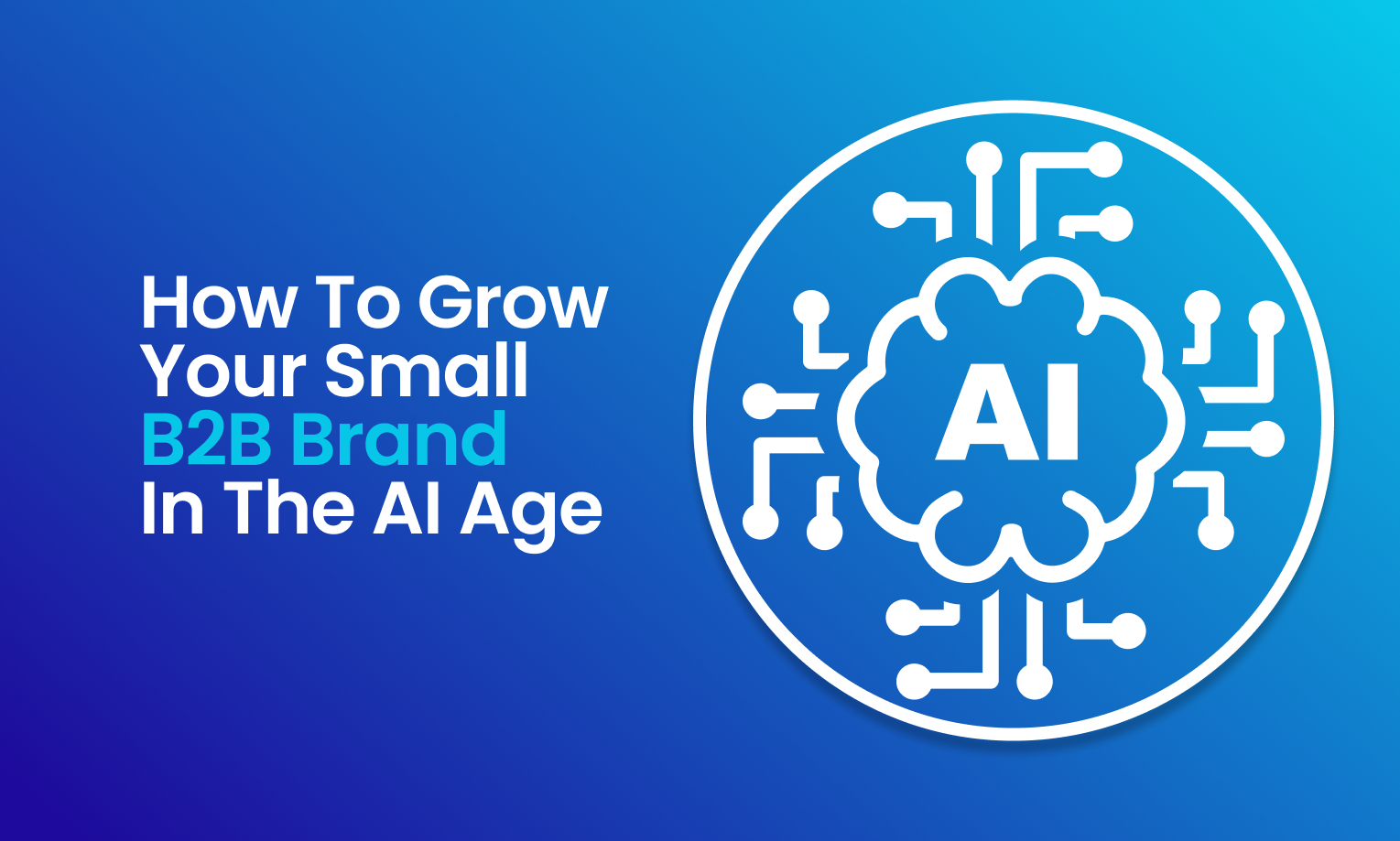
AI is transforming the way we search online.
I have a quick story for you to prove this.
I recently joined a public speaking club, where I meet people from diverse backgrounds and age groups. And there’s this one question everyone seems to love asking: “How did you find this club?”
My answer? I’d been hearing about it on YouTube and from my online friends for 6-7 years.
But two members gave a different answer that hit me hard as a marketer:
“ChatGPT suggested this club when I asked how I can improve my communication skills.”
That single moment revealed a fundamental shift:
People are still searching for things online — but they’re moving from Google to AI tools like ChatGPT, Perplexity, and Claude.
This blog is about how small B2B brands can navigate this shift and still shine in search results — even when those searches don’t happen on Google anymore.
Why Should B2B Businesses Care?
For the past 20+ years, Google has been the go-to search engine for B2B buyers. We all built our websites, invested in SEO, and produced blog content to drive organic traffic.
But the game is evolving fast.
A Sprout Social Q2 2025 Pulse Survey found that 41% of Gen Z users now turn to social platforms first for information, surpassing search engines at 32%.
But what’s the relation between AI and social platforms, you might ask?
Here’s why: Most popular AI tools are using some social media platforms and websites, such as Reddit and Wikipedia, as their primary citations.
And as a B2B marketer or founder, this means one thing: If you’re not discoverable by AI, you’re invisible to a big portion of your future customers.
So, how can small B2B businesses AI-proof their brand?
Let’s break it down.
1. Leverage Wikipedia — The AI Citation King
AI tools like ChatGPT and Perplexity rely on credible sources to generate answers. And one platform dominates their citations: Wikipedia.
According to a LinkedIn post by Noah Horner, a staggering 47.9% of ChatGPT citations come from Wikipedia.
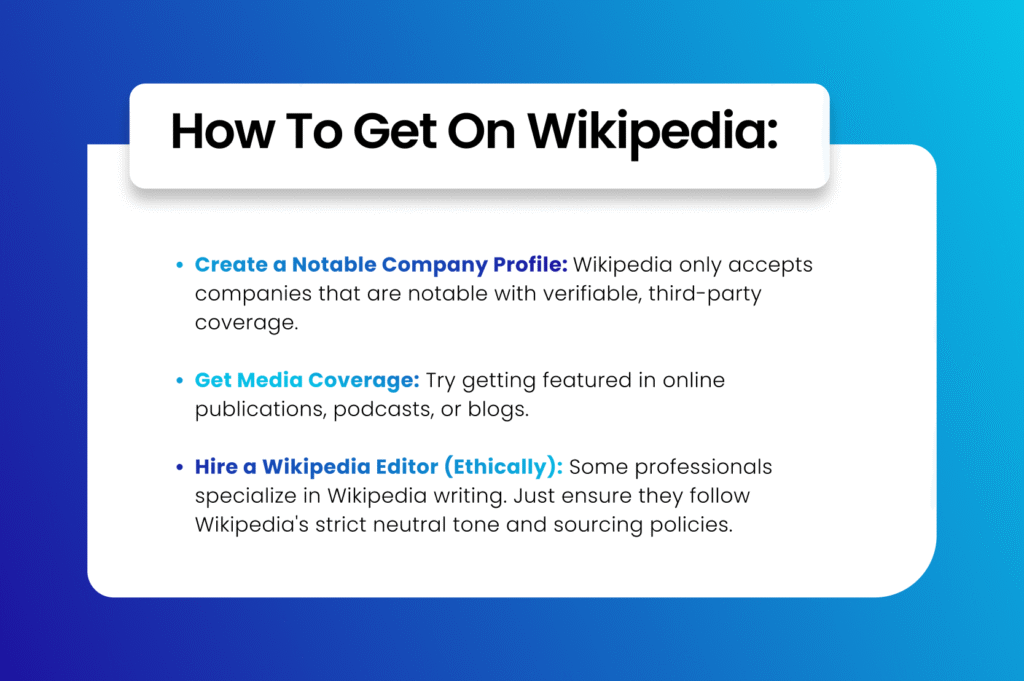
Being on Wikipedia not only boosts your visibility to AI tools but also increases trust when buyers research your brand.
2. Show Up on Reddit (Without Selling)
Reddit has become a goldmine of community-driven knowledge. And guess what? 46.7% of Perplexity.ai’s citations come from Reddit. (Source: Noah Horner’s LinkedIn post)
Unlike LinkedIn or Facebook, Reddit thrives on genuine, no-agenda answers. If you show up as a helpful expert in subreddits like r/B2BMarketing, r/SaaS, or industry-specific spaces, your responses can:
- Get indexed by AI tools
- Build credibility with a niche audience
- Create future referral traffic
3. Create YouTube Content for Your ICP
YouTube isn’t just a social media platform anymore. It’s one of the most cited sources by AI tools.
Even Noah Horner notes that many CMOs he spoke with were surprised to find YouTube videos being referenced in AI answers.
If you sell to engineers, founders, or HR teams — start recording useful, insight-rich content.
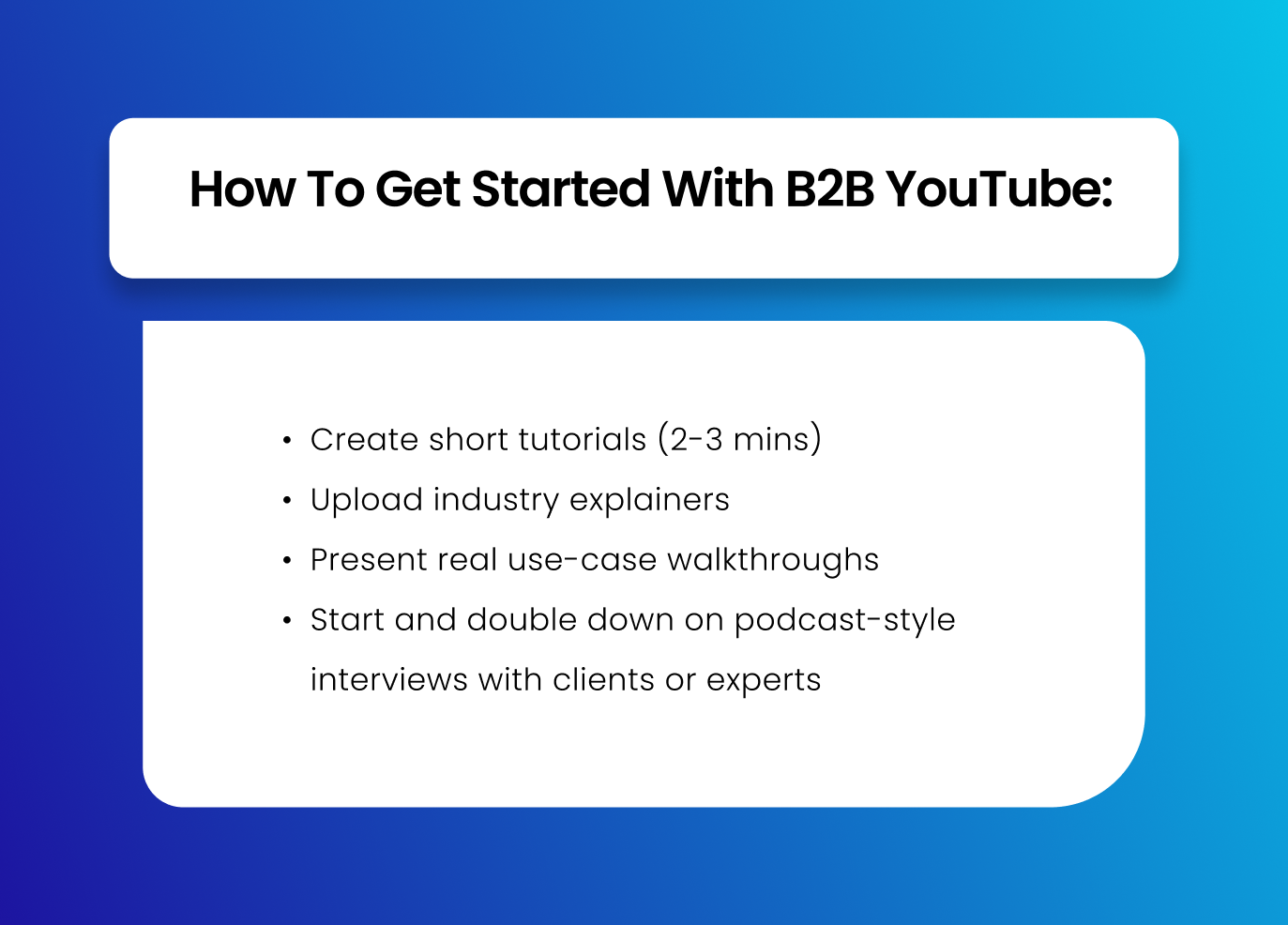
Remember: To YouTube, you don’t need flashy production. Just clarity + consistency.
4. Get Listed on G2 and Review Sites
If you’re in B2B SaaS or sell a tech-driven solution, G2 is non-negotiable.
Why?
G2 appears in 6.7% of citations across AI search results, making it a powerful trust and discovery engine.
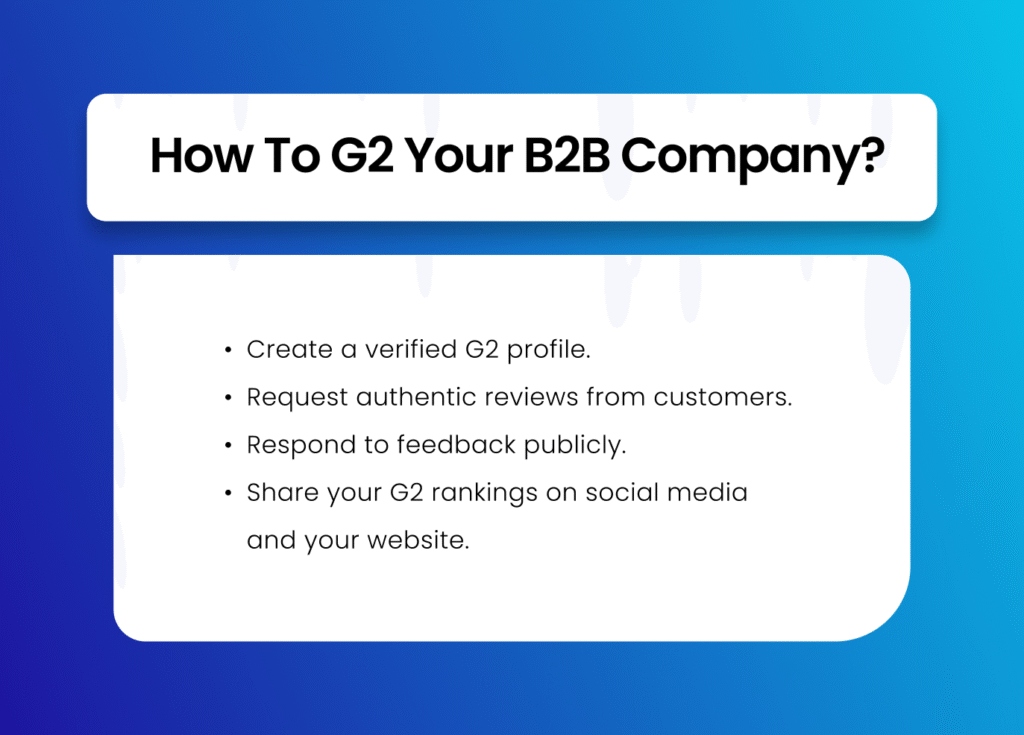
Being present on G2 doesn’t just help with AI discovery; it also builds third-party proof that boosts conversions.
5. Invest in Organic Thought Leadership on LinkedIn & Quora
While Wikipedia and Reddit feed AI engines, platforms like LinkedIn and Quora build your digital presence for people.
And as AI starts pulling in summaries of thought leaders, your content there can influence its recommendations.
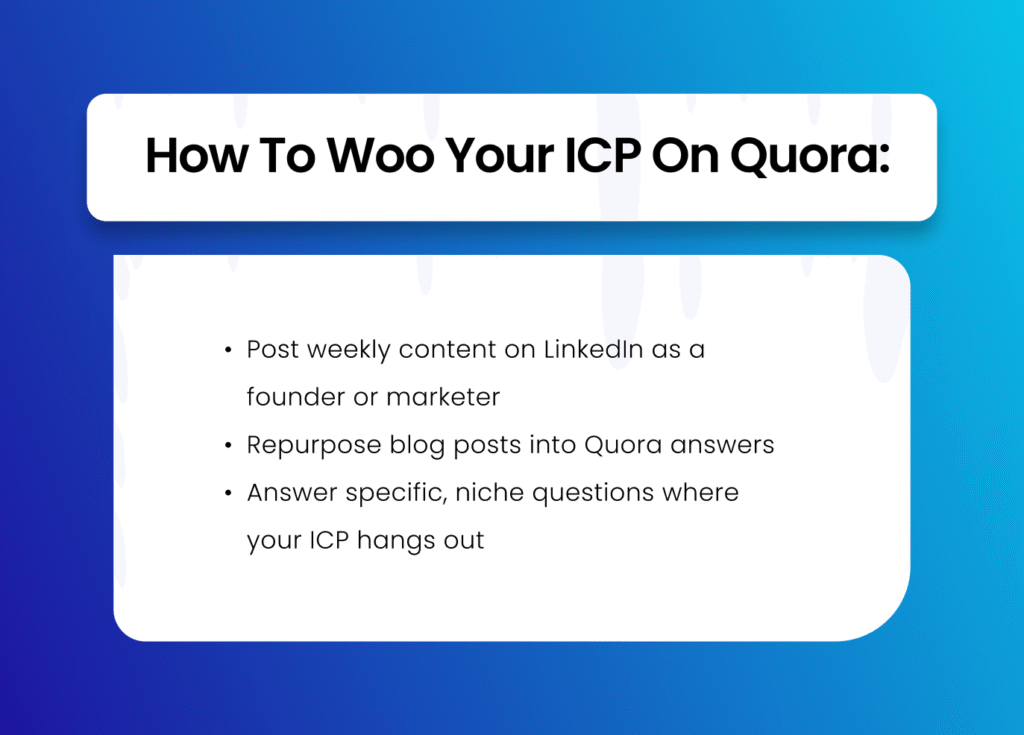
Consistency beats viral posts. The goal is to build an archive of insights that machines and humans can find useful.
6. What’s NOT Changing: Paid Media Still Works
Even with all this AI-focused content optimization, paid advertising is still just as powerful as before. Especially on LinkedIn.
Why?
Because your target audience — B2B decision-makers — are actively using LinkedIn.
What they want is:
- Value-rich content in their feed
- Credible proof, not sales fluff
- Offers tailored to their pain points
LinkedIn Ads let you do exactly that. You can target job titles, industries, and even specific companies.
Case in point: TheOther4
We worked with TheOther4, a B2B tech brand, and ran a full-funnel LinkedIn ad campaign tailored to their decision-makers.
The result? Over 500 qualified leads generated with a 32% decrease in cost per qualified lead. And premium leads converted, such as Nestle, P&G, and many more.
The key was to match the message to the audience’s funnel stage and use ad creatives that felt native to LinkedIn, not like obvious ads.
👉 Read the full TheOther4 case study here.
Final Thoughts: AI-Optimization+ Paid Media = B2B Success In 2025
B2B buyers want more now. Apart from hanging out on the digital communities, they want their answers fast, without hopping from blog to blog.
Hence, they’ll continue using LLM AI tools for consolidated and rich-quality answers.
And even if they do search on Google, Google is also giving them a cherry-picked, AI-consolidated answer snippet on their search result.
Hence, the crux is that we are seeing an AI+B2B marketing amalgamation.
Search isn’t dying. But it is evolving.
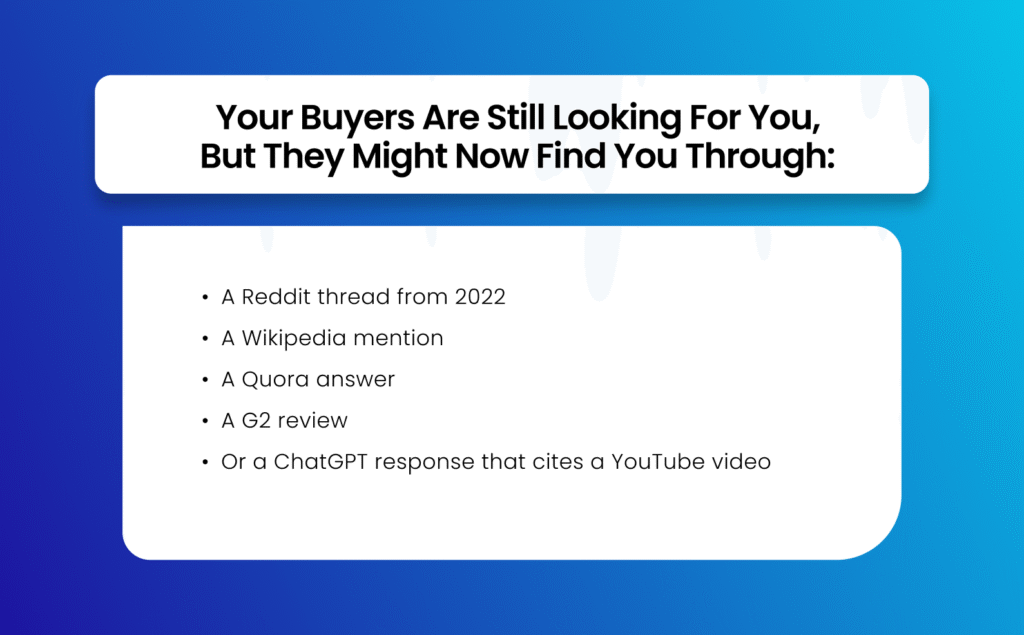
The common thread?
You must create content that AI trusts, sources, and recommends.
At the same time, platforms like LinkedIn still offer incredible ROI with paid reach, especially if you know how to speak to your audience’s real problems.
So if you’re a small B2B brand looking to grow in 2025 and beyond, here’s your two-part strategy:
- AI-proof your organic presence by showing up where AI pulls its data from.
- Run intent-driven paid ads on platforms like LinkedIn to generate pipeline predictably.
All in all, AI isn’t replacing B2B marketing. But it is forcing us to evolve.
Are you ready?

